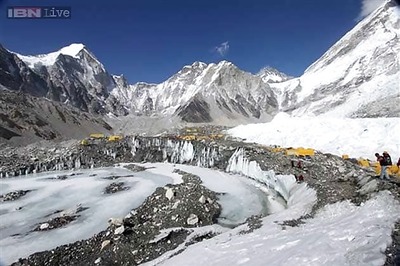
views
Indian security agencies may adopt counter-radicalisation methods similar to those followed by Indonesia and Malaysia in order to further enhance the country’s existing counter radicalisation model. A detailed study of such techniques followed in the two countries is being carried out.
CNN-News18 has learnt that at a recent high-level security meet, it was stressed upon that a team be formed to study practices that Indonesia and Malaysia use to tackle counter radicalisation. The meeting was attended by the heads of all major security establishments in the country. The directions, that came from the top authorities, are being looked at by the Ministry of Home Affairs, Intelligence Bureau (IB) and the Bureau of Police Research and Development (BPR&D), sources said.
According to the data from the Global Terrorism Database (GTD) at the University of Maryland, which catalogues terrorist attacks, there was a steep rise in cases of terror attacks reported from southeast Asia starting 2011, but the numbers dramatically fell 2016 onwards.
In 2013, the region reported terror related attacks as high as 1,001. These were categorised into 19 groups, of which at least 13 were connected to radical Islam, the GTD data suggests. This significant fall in the number of terror incidents reported from southeast Asia, experts believe, could be a reason behind the Indian agencies looking at counter-radicalisation practices followed by countries in this region.
A senior officer CNN-News18 spoke to, said Indonesia and Malaysia are two countries that are believed to have effectively dealt with terrorism and radicalisation in this region. “If we talk about Indonesia, interestingly, most effective features of their de-radicalisation programs are not based on religious re-education. Studies reflect that while dealing with radical elements, the country focuses at extending financial assistance to detainees during their detention period. Efforts are also made to develop their vocational skills in order to allow their effective integration back into the mainstream,” he said, adding that in similar efforts, many such detainees were also extended medical help as well as financial aids in many instances.
In the context of Malaysia, on the other hand, their de-radicalisation initiatives significantly include religious rehabilitation, the officer added, requesting anonymity. “The process usually includes counselling, to first erase radical or misunderstood ideologies and then instil corrective thinking with comprehensive education programs related to Islamic or other religious studies,” the officer said.
Explaining the situation of radicalisation in India, YC Modi, former Director General of the National Investigation Agency (NIA), premier anti-terror organisation in India, stated that absence of any effective system of clarifying the religion-centric doubts of Muslim youths was one of the main reasons of them getting radicalised as they try to address these queries online.
“Needless to say, Internet is full of hard-line and irrational thoughts and inspires the unsuspecting young minds towards radical beliefs. Modern and balanced Muslim NGOs need to come forward for the same,” he said.
The former NIA chief added that this had surfaced in several investigations conducted by the NIA during his tenure and interactions with the arrested terrorists by the anti-radicalisation cell.
“However, the number of youth who joined terror groups in India, despite repeated attempts by outfits like the ISIS, is much less than in countries with majority Muslim population or certain western countries. I believe, since most of our development and welfare schemes are religion neutral, we also need effective propagation that there was no religious discrimination by government as perceived by some Muslims groups,” Modi said.
Putting things in perspective, Rajat Mitra, a clinical psychologist who has worked with Islamic militants and radicalised youths, said, in his opinion, the study of counter-radicalisation practices remains consistent across different countries, whether it’s Afghanistan, Malaysia, or Indonesia. “India’s focus on this region is likely due to its current volatility. For instance, Malaysia shares a volatile border with Thailand, where an Islamic movement is active. Moreover, the presence of a US base in the region signals a rise in militancy, as the U.S. aims to maintain control over the area,” he said.
Mitra, who has worked with Islamists in the Southeast Asia region, added, “As India’s influence grows, it is crucial to monitor secessionist movements and similar activities in this region. These movements can quickly connect with counterparts in India or its neighbouring countries, affecting the flow of arms and money.”
Explore in-depth coverage of Lok Sabha Election 2024 Schedule, Voter Turnout, Upcoming Phase And Much More At News18 Website


















Comments
0 comment